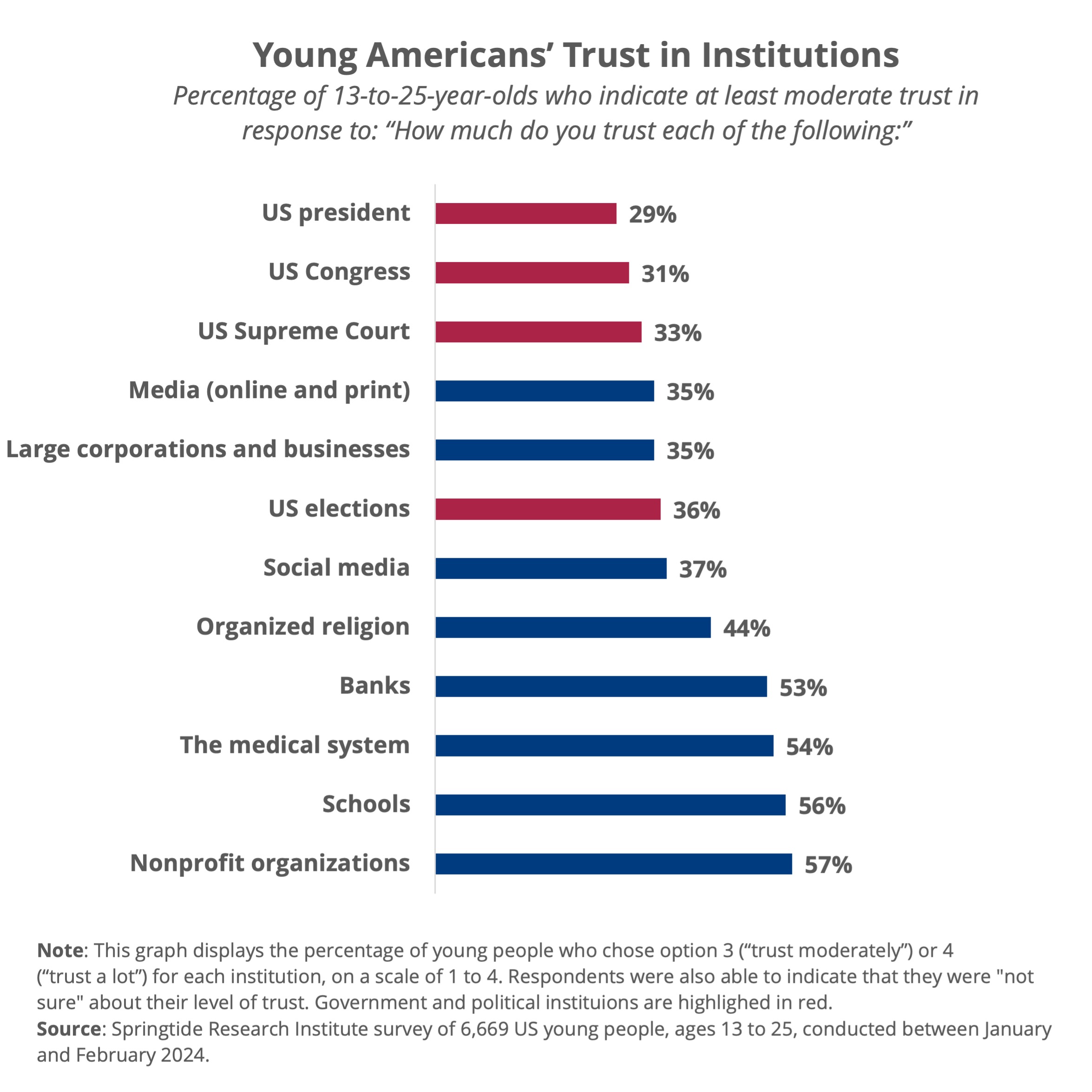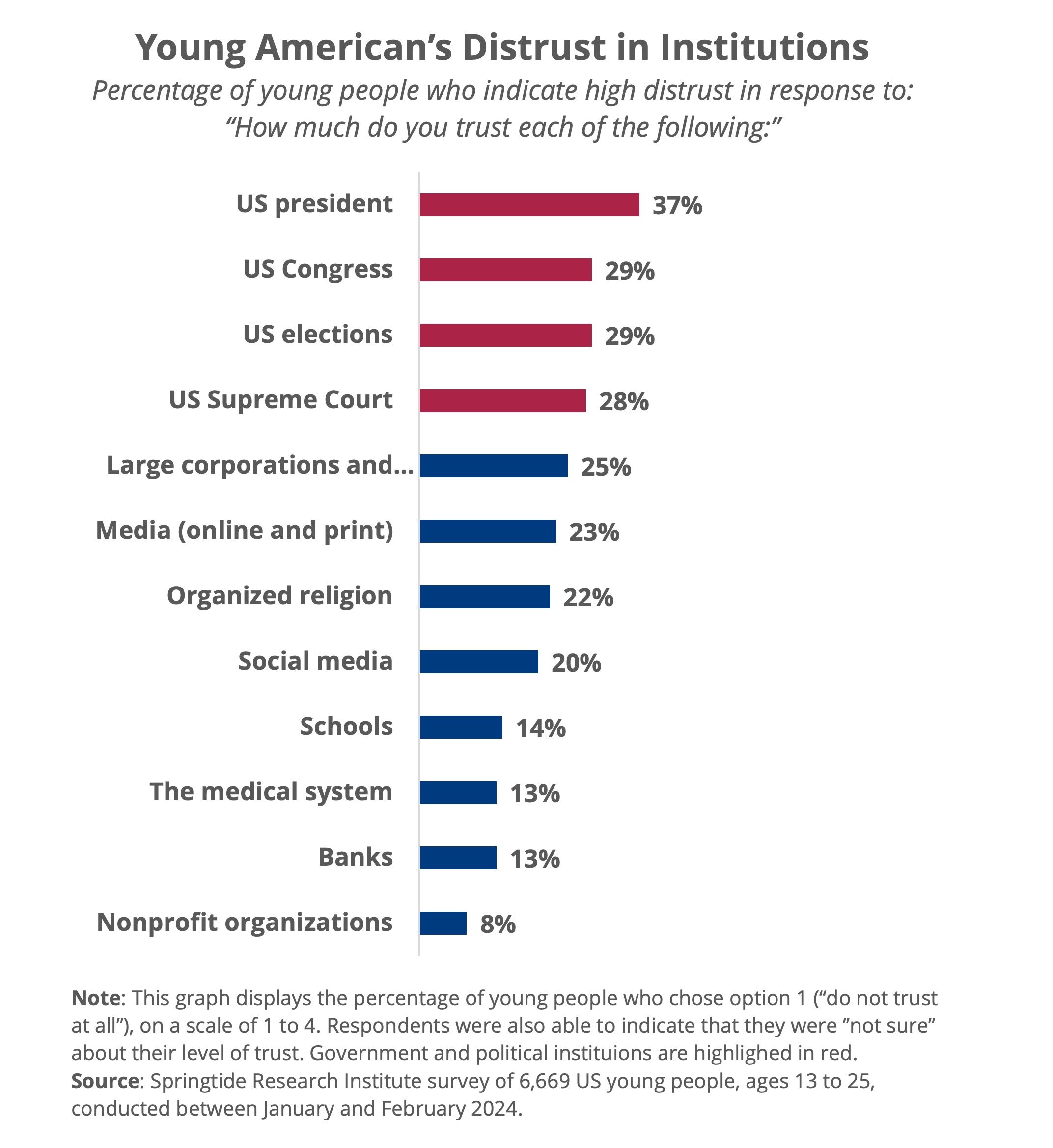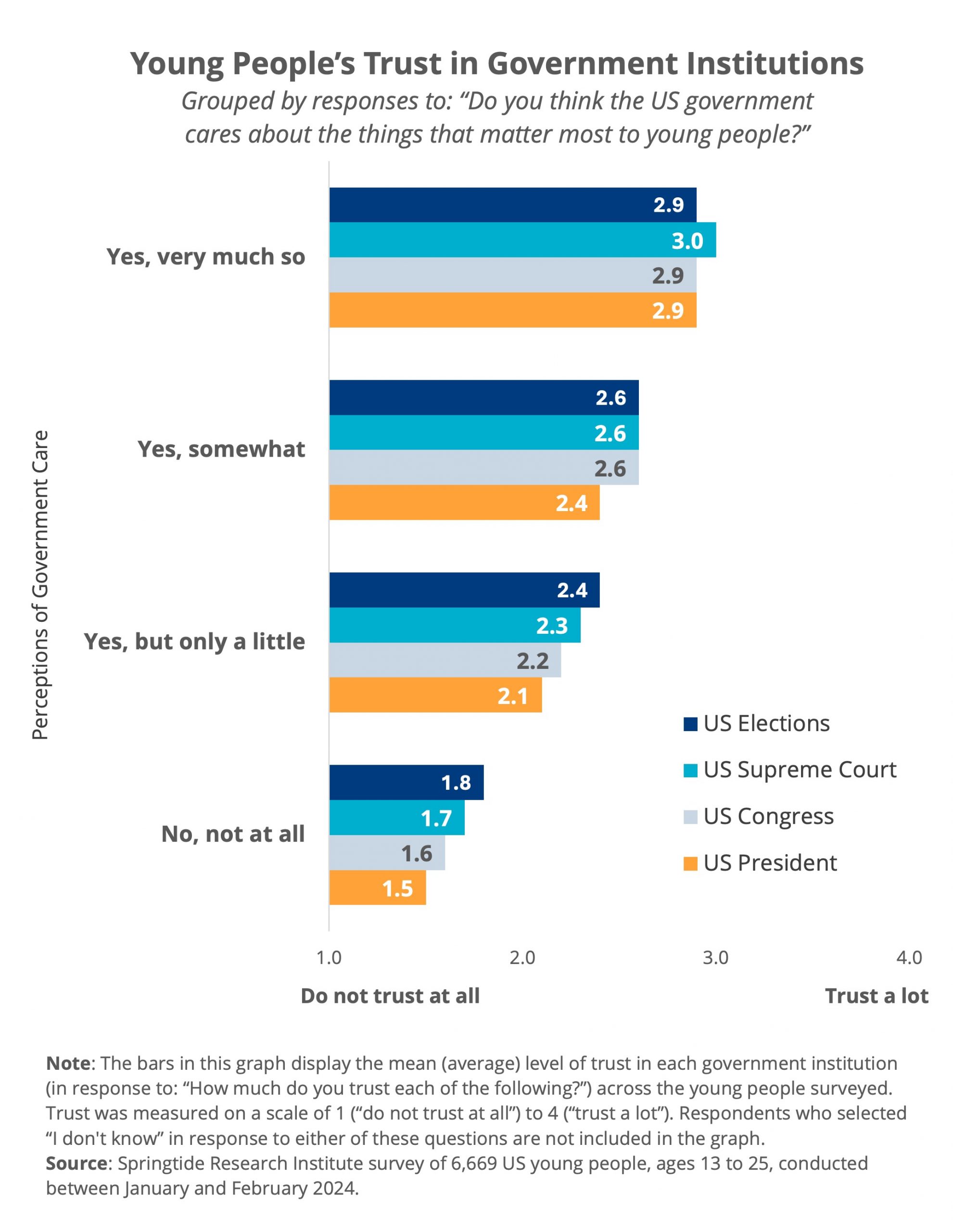
Low Confidence in U.S. Institutions—Especially Political Institutions—among Young People
Young People Have a Low Level of Trust in the US Government
Few Americans between the ages of 13 and 25 trust US institutions fully, and among those they find least trustworthy are the three branches of the US government. The US president, US Congress, and US Supreme Court each garner trust (at least moderately) from fewer than 35% of young people in the United States. Also emerging as less trustworthy are online and printed media, large corporations and businesses, US elections, social media, and organized religion—fewer than 45% of young people report trusting each of these institutions at least moderately. This general distrust aligns with our previous research (State of Religion and Young People 2020: Relational Authority), which also found that young people had low trust in societal institutions, particularly the presidency, big business, Congress, and media.

Over one-third (37%) of young people do not trust the US president at all
Thirty-seven percent of young people indicate that they do not trust the US president at all. The percentage of young people who chose this response option for the US president is significantly higher than that of any other institution.

One factor that may contribute to young people’s distrust of government institutions is the extent to which the government seems to care about issues that matter to young people. Young Americans who think that the US government cares about the things that matter most to young people are more likely to trust political and governmental institutions.

See our latest work on how young people are navigating civic life. Order Cultivating Care and receive our newest insights on how and why young people create and sustain patterns of care in their civic lives, and how adults can support them.
Note: These findings are based on a 2024 Springtide Research Institute survey of 6,669 young people between the ages of 13 to 25. See question wording and survey responses in the topline survey results and review methodology here.



